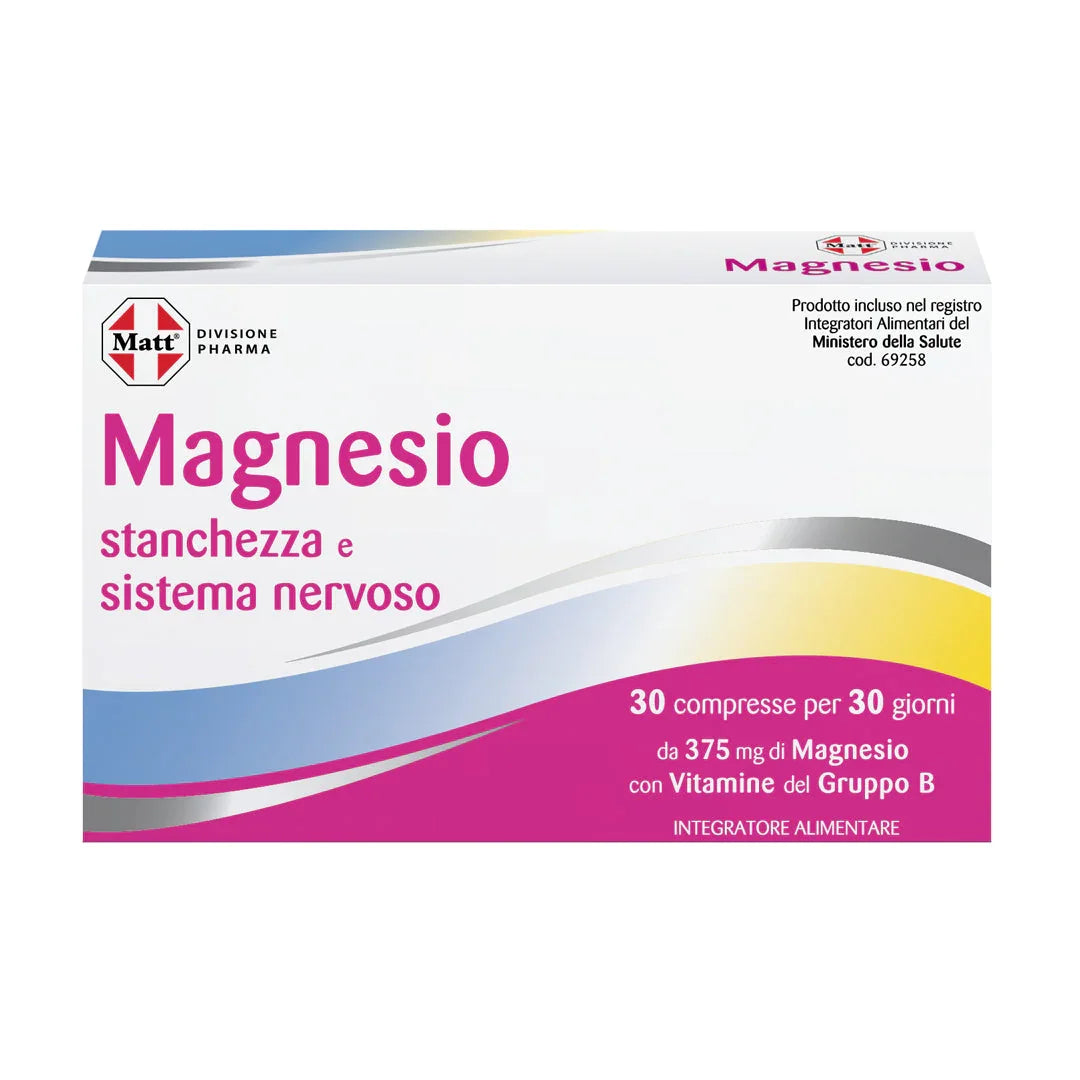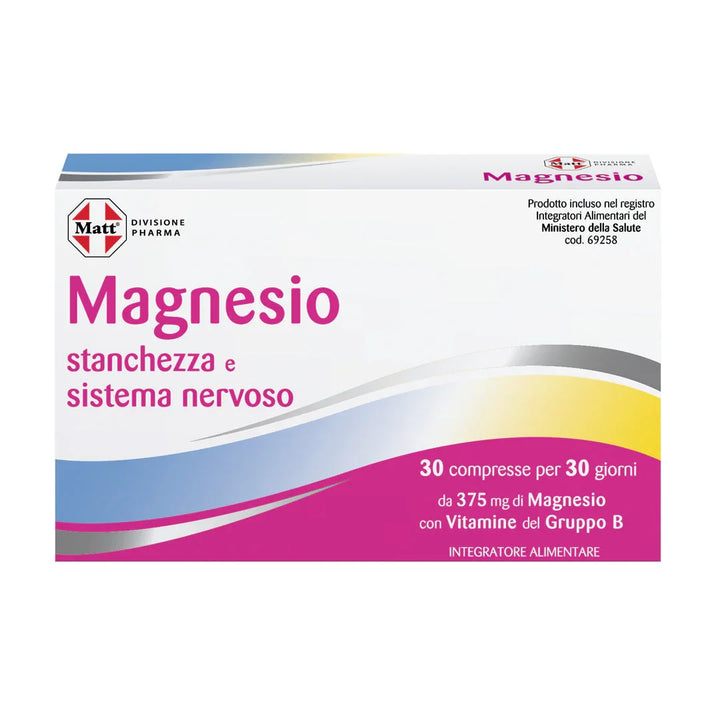Magnesium is a mineral that is essential for the proper functioning of the human body, involved in numerous vital functions. Its adequate presence is essential for the health of muscles, bones, the nervous system and energy metabolism. A mineral often cited but magnesium: is it useful by chance? Let's find out together!
Main Functions of Magnesium
-
Energy Metabolism
Magnesium is involved in energy production, participating in the reactions that transform nutrients into ATP, the main energy molecule of cells.
-
Protein Synthesis
It contributes to the synthesis of proteins, supporting the growth and repair of body tissues.
-
Muscle and Nerve Function
Magnesium is essential for the transmission of nerve impulses and for muscle contraction and relaxation.
-
Bone Health
About 50-60% of the body's magnesium is stored in bones, where it contributes to their formation and maintenance of bone density.
Food Sources of Magnesium
To ensure an adequate intake of magnesium, it is advisable to include foods rich in this mineral in your diet, such as:
- Unpolished cereals
- Walnuts
- Green leafy vegetables
A balanced and varied diet is generally sufficient to meet the daily requirement of magnesium for most people.
Magnesium Deficiency: Symptoms and Consequences
A magnesium deficiency can manifest itself with symptoms such as:
- Muscle cramps
- Weakness and fatigue
- Irritability and mood swings
- Heart rhythm disorders
- Confusion and tremor
If you suspect a deficiency, it is important to consult a doctor for a thorough evaluation and to determine if supplementation is needed.
Magnesium plays a crucial role in numerous physiological functions, making it essential to get enough of it through a balanced diet or, if necessary, through supplements under medical supervision. Making sure you consume enough magnesium each day helps improve energy metabolism, muscle and bone health, as well as reducing the risk of cardiovascular problems and nervous system disorders.
































